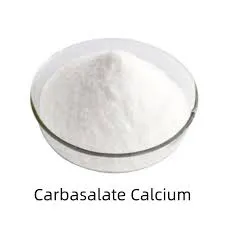- Afrikaans
- Albanian
- Amharic
- Arabic
- Armenian
- Azerbaijani
- Basque
- Belarusian
- Bengali
- Bosnian
- Bulgarian
- Catalan
- Cebuano
- Corsican
- Croatian
- Czech
- Danish
- Dutch
- English
- Esperanto
- Estonian
- Finnish
- French
- Frisian
- Galician
- Georgian
- German
- Greek
- Gujarati
- Haitian Creole
- hausa
- hawaiian
- Hebrew
- Hindi
- Miao
- Hungarian
- Icelandic
- igbo
- Indonesian
- irish
- Italian
- Japanese
- Javanese
- Kannada
- kazakh
- Khmer
- Rwandese
- Korean
- Kurdish
- Kyrgyz
- Lao
- Latin
- Latvian
- Lithuanian
- Luxembourgish
- Macedonian
- Malgashi
- Malay
- Malayalam
- Maltese
- Maori
- Marathi
- Mongolian
- Myanmar
- Nepali
- Norwegian
- Norwegian
- Occitan
- Pashto
- Persian
- Polish
- Portuguese
- Punjabi
- Romanian
- Russian
- Samoan
- Scottish Gaelic
- Serbian
- Sesotho
- Shona
- Sindhi
- Sinhala
- Slovak
- Slovenian
- Somali
- Spanish
- Sundanese
- Swahili
- Swedish
- Tagalog
- Tajik
- Tamil
- Tatar
- Telugu
- Thai
- Turkish
- Turkmen
- Ukrainian
- Urdu
- Uighur
- Uzbek
- Vietnamese
- Welsh
- Bantu
- Yiddish
- Yoruba
- Zulu
Nov . 09, 2024 15:06 Back to list
Exploring the Effects of Krim Gentamicin Sulfate on Bacterial Infections and Treatment Efficacy
The Role of Gentamicin Sulfate in Modern Medicine
Gentamicin sulfate is an essential antibiotic used in the treatment of various bacterial infections. As a member of the aminoglycoside class of antibiotics, it is primarily effective against aerobic Gram-negative bacteria and some Gram-positive bacteria. Its discovery and subsequent use have revolutionized the treatment approaches for patients suffering from serious infections.
Mechanism of Action
Gentamicin sulfate works by inhibiting bacterial protein synthesis, which is crucial for the growth and reproduction of bacteria. It binds to the 30S ribosomal subunit of the bacterial ribosome, causing misreading of mRNA and leading to the production of dysfunctional proteins. This ultimately disrupts the integrity of the bacterial cell, leading to cell death. Due to its potent antibacterial activity, gentamicin is often preferred in severe cases, especially when immediate bacterial eradication is necessary.
Clinical Applications
Gentamicin sulfate is utilized in various clinical settings. It is particularly effective in treating infections like sepsis, pneumonia, urinary tract infections, and infections caused by multi-drug resistant pathogens. Its broad spectrum of activity means it is often employed in situations where the specific bacteria are not yet identified, providing a fast and effective response to critical infections.
In addition to treating infections, gentamicin sulfate is also used in combination with other antibiotics to enhance therapeutic efficacy. For example, it is frequently administered alongside penicillins in the treatment of endocarditis, as the combination can improve coverage against resistant organisms.
Administration and Dosage
krim gentamicin sulfate

Gentamicin sulfate can be administered through various routes, including intravenous, intramuscular, and sometimes topical applications. The choice of administration often depends on the severity of the infection and the patient's overall health condition. For instance, serious systemic infections typically require intravenous administration to ensure that therapeutic levels are achieved quickly.
Dosing regimens for gentamicin are typically based on body weight, renal function, and the clinical situation. It is essential for healthcare providers to monitor therapeutic drug levels, as gentamicin has a narrow therapeutic index. This means that the difference between an effective dose and a toxic dose is small, making careful monitoring crucial to avoid potential side effects.
Side Effects and Considerations
While gentamicin sulfate is an effective treatment option, it is not without risks. The most significant side effects include nephrotoxicity (kidney damage) and ototoxicity (hearing damage). These risks are heightened in patients with pre-existing renal issues or in those receiving higher doses for extended periods. Therefore, renal function should be regularly monitored during treatment to identify any adverse effects early.
Additionally, gentamicin sulfate may cause other side effects such as dizziness, headache, and rashes. Patients should be educated about these possible reactions and the importance of reporting any unusual symptoms to their healthcare provider.
Conclusion
In summary, gentamicin sulfate is a crucial antibiotic in modern medicine, effectively treating a range of serious bacterial infections. Its unique mechanism of action, broad spectrum of activity, and role in combination therapies make it an important tool for healthcare providers. However, the associated risks necessitate careful monitoring and consideration of each patient’s individual health status. Through responsible use, gentamicin sulfate continues to play a vital role in combating bacterial infections and improving patient outcomes in the healthcare landscape.
-
Guide to Oxytetracycline Injection
NewsMar.27,2025
-
Guide to Colistin Sulphate
NewsMar.27,2025
-
Gentamicin Sulfate: Uses, Price, And Key Information
NewsMar.27,2025
-
Enrofloxacin Injection: Uses, Price, And Supplier Information
NewsMar.27,2025
-
Dexamethasone Sodium Phosphate Injection: Uses, Price, And Key Information
NewsMar.27,2025
-
Albendazole Tablet: Uses, Dosage, Cost, And Key Information
NewsMar.27,2025













